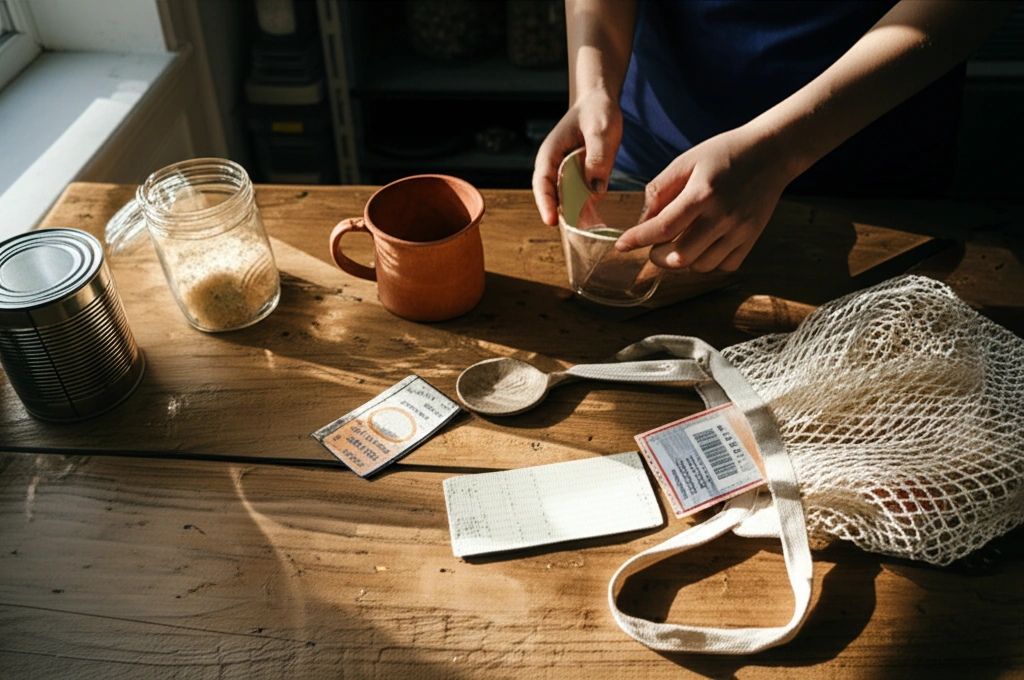Ever picked up a random tip from a friend that sounded so wild you had to try it? Or maybe you’ve scrolled past someone’s “we lived on $34 this week” story and paused, secretly wondering: could I actually do that? If you’re here pulling up “extreme frugal living stories,” I’m guessing you’re after more than a list of boring, cookie-cutter frugal living tips. You want the gritty, the heartwarming, the laugh-out-loud awkward. And—let’s be honest—maybe you want to save a little (or a lot) more money without losing your mind or your friends along the way.
Let’s get right into it. I want you to walk away with real stories (not just theory), weird but wonderful tricks you might actually dare to try, and a good sense of where that savings/sanity line is. Extreme frugal living isn’t just for people stockpiling toothpaste or washing Ziplocs till the letters smear off (though hey, I’ve been there). It can be freeing, fun, or frankly a little strange—and sometimes all three at once.
What Extreme Frugal Living Really Looks Like
So what counts as “extreme” anyway? Skipping the morning coffee, or making your own laundry detergent out of soap scraps and vinegar? There’s a big gray area between “normal frugal” and “my family won’t look me in the eye at restaurants anymore.” And trust me, there are real people living every version of this spectrum.
Everyday Frugal vs. The Deep End
Let’s start with the basics. Most of us know the usual frugal living at 60 tricks—meal planning, buying generic, turning down the thermostat, walking instead of driving. But then there are the stories that make you double-take. One Redditor, for example, grew up with an aunt who never washed her can opener—she just wiped it with a napkin to “prevent corrosion” and used the same one for decades. A bit much? Probably. But you can’t say it isn’t committed! Another confessed her father-in-law cut up his old underwear and used the elastic as a sweatband for lawn mowing. Forget the gym subscription, right?
On the flip side, there are everyday folks who go from ordinary to legendary simply by necessity. Like one blogger who, because of a modest pension and some savings, committed so fully to extreme frugality that she retired early, paid off her house, and now watches her partner work just two days a week—all on less than half of what most folks would call a “normal” income[source]. Not a “sackcloth and ashes” life, she says, but real freedom. And that’s something pretty special.
Why People Go (Delightfully) Extreme
Some jump headfirst into the frugal pool because they want to pay off debt fast. Others are itching for early retirement or hate the idea of working just to spend. And then there are those, like me and maybe you, who just get a weird kick from beating the system, or, honestly, love a dare. For some, frugality brings a kind of control when everything else in life feels wobbly. For others, it’s a little rebellion against a world selling us stuff we don’t need.
Extreme Frugal Living Stories That Inspire and Entertain
Laura Vanderkam’s “Year of Living Frugally”
If you haven’t heard of Laura Vanderkam, just know—she’s the queen of tracking her time, money, and sanity, and her “year of living frugally” is packed with real, workable ideas. As a recent college grad with a $1,200 monthly income (yes, really), she managed to live, share a house, cook everything from scratch, and still squirrel away a little for the future. She took public transit, avoided the car trap, and learned to be creative about every expense, proving you can survive, and even thrive, on way less than you think[source].
What’s worth copying?
Shared housing, minimalist grocery budgets, and learning to do with less—those are takeaways anyone can test out. Her trick? Making it a personal challenge instead of a punishment. If you want more on targeting frugality to your age group, take a peek at frugal living at 60.
The $34.01 Week—Too Much?
Ever stared at your expenses and thought, “Let’s see how low I can go?” MoneyNing tried it—just $34.01 for a whole week. They slashed grocery costs (homemade noodles, anyone?), unplugged pretty much everything, skipped non-essentials, and—surprisingly—actually felt more energetic[source]. Maybe it’s the challenge, maybe it’s just a break from digital overload.
Lessons learned?
You’ll never look at leftovers the same way. But also—sometimes you realize where your money goes, and what you really value. If nothing else, it’s eye-opening to try… for a week. A whole year? That’s another story.
Retirees, Reduced-Work, and the Power of “Enough”
One thing that keeps coming up: extreme frugal living isn’t just for twenty-somethings. People of all ages are redefining retirement. Take the blogger who retired early—and let her partner cut work days—because ruthlessly cutting expenses meant they needed so much less than the “experts” said was required. She used to juggle long workweeks and endless bills. But once frugality became a way of life, not just a quick fix, life got simpler and sweeter[source].
Strange, Fun, and a Little Gross: Community Tales
Let’s not sugarcoat it: some of the most “extreme” stories are just downright weird. There’s the community member who repurposed old underwear into sweatbands. Another who air-dries every piece of laundry, rain or shine. One quirky favorite: collecting freebies from detergent boxes until every plate and towel in the house was “gifted” by the grocery store. That’s dedication (and maybe a little bit of a hoarder spirit). Still, these stories highlight the creativity you can unleash when “store-bought” isn’t the first option. Want a full list? Check out these unusual frugal tips for ideas you might actually be brave enough to steal.
Real Results From Going Extreme
Dollars, Debt, and the Joy of Less
Let’s face it: plenty of these stories end with something that’s impossible to argue with—paid-off houses, retirement before 60, debt-free living on one income. Folks who track their progress straight-up see bigger bank balances and lower stress. Some even say the act of tracking alone (“Hey, I spent $11 on food this week!”) is wildly empowering. Think of it as a game, not a burden—a weird kind of treasure hunt.
More Than Just the Money: Peace of Mind
The secret bonus nobody tells you about? Frugal living can give you real peace of mind. Seriously. When you’re not worried about impressing anyone or missing out on yet another sale, your attention shifts. Simple joys—a walk in the park, sharing a homemade meal—suddenly mean more. According to studies, reducing financial stress improves your mood and, over time, even your physical health. It’s like opening a window in a stuffy room. Who knew?
Finding Your People
Another beautiful—and often unexpected—perk is connection. Communities grow around swapping, upcycling, and sharing advice. Bartering replaces buying. You become that friend who always knows how to fix, find, or swap for anything. And, trust me—when times get tough, these networks feel like gold.
When Extreme Is Too Much (Yep, It Happens)
The Health Hazards Line
All right, let’s talk boundaries. Frugal is fun… until it’s not. When you’re scrubbing out old bread bags for reuse, or skipping basic hygiene to save a few dimes, it’s time to check in. There is such a thing as too much. Some tactics, while inventive, can risk your health (think: never washing food tools, or reusing disposable goods beyond reasonable limits). Frugality should make you healthier and happier, not the opposite[source].
The Emotional Toll
Some folks end up distancing themselves from friends and family, or feeling shame around choices (“Why don’t you just buy new shoes already?”). Extreme frugality can even become a source of conflict or isolation. And sometimes, the savings aren’t worth the social cost. If you notice yourself defending every penny or avoiding social gatherings to stick to a budget, it might be time to loosen the purse strings just a tad.
What About the Future?
The other pitfall—sometimes, major cutbacks now can mean missing out on opportunities later. Skimping on health care, skipping investments, or ignoring your own happiness can cost more in the long run. Ask yourself: am I saving out of joy and purpose, or is it starting to run my life?
How To Try Extreme Frugal Living (Safely!)
Easy Wins To Get Started
- Start with safe, fun experiments—bulk-buying pantry staples, meal prepping, and finding beauty in hand-me-downs.
- Unplug unused electronics (vampire loads, be gone). It might sound small, but over months, those pennies stack up.
- Challenge yourself to find joy in used clothes—mend, thrift, repair. You’d be surprised how much money (and landfill space) you’ll save.
If you’re up for more oddball hacks, I loved some on this unusual frugal tips roundup. Some might make you laugh, but a few are truly genius.
Try, Track, Tweak—Don’t Torture Yourself
Want to go deeper? Try a “frugality sprint”—just for a month. Skip takeout, downgrade phone plans, or do a “buy nothing new” challenge. But keep the experiment mindset: track how you feel, not just what you save. And if it gets miserable, you’ve found your line. No shame in that.
Frugal Living at 60 (and Beyond)
The rules change as we get older. If you’re flirting with retirement or just don’t want to work forever, frugal living at 60 can open doors. But priorities shift—health, mobility, and meaningful social time matter more than ever. Cut costs strategically, but don’t cut corners on what keeps you vibrant and connected. If you want ideas tailored just for this stage, check out frugal living at 60.
Looking Ahead: Frugal Living Tips for 2025
Frugal living isn’t frozen in time. Think digital: apps for tracking expenses, community swaps via neighborhood groups, clever side hustles that fit your schedule. It’s never about doing without for the sake of “hardcore”—it’s about being smart and kind to your future self. Before you adopt a tip, pause and ask: will this make my life safer, happier, or more sustainable? Or is it just a good story?
How To Judge If a Story or Tip Is Legit
Heads up: not all extreme frugal living stories are useful (or even true). Before you leap into action, look for real results—are there numbers and timelines? Did the storyteller admit to fails? What’s their motivation? Most importantly: will copying this tip risk your health, relationships, or long-term dreams?
If you’re not sure, try it on a “trial” basis. Test. Track. Adjust. That’s how you find your sweet spot between saving big and living well.
Want to Dive Deeper? Listen to the Experts
I can ramble all day about living on less, but sometimes, you want the science. Researchers and behavioral economists have some mind-blowing findings: for example, that simple budgeting boosts happiness (not just your balance), and that communities built around resource-sharing are more resilient in tough times. If you’re a numbers person, or just want a little outside affirmation, look for validated studies and public data—according to financial planning experts and mental health research, even “moderate” frugality can be life-changing (but only if it’s sustainable and guilt-free).
Share Your Story, Be Part Of The Conversation
So here’s my challenge: what wild, wonderful, or just weird frugal habit have you tried? Did it bomb, or change your life? If you’ve ever wrestled with the “is this extreme or just smart?” question, your story could help someone else—yep, even that tale about homemade toothpaste or those hand-me-down sweatbands. We all start somewhere, and your honesty just might be the spark another reader needs.
Conclusion
Whether you’re drawn in by hope, skepticism, or pure curiosity, extreme frugal living stories have a way of making us rethink our money—and sometimes even our lives. Some people find freedom, peace, and crazy savings; others bounce off the limits, realizing that happiness comes from balance, not deprivation. So try the tips that fit, laugh at the ones that don’t, keep yourself safe and sane, and remember: saving money is a means to a good life, never the whole story. Have a favorite hack—or an epic flop? I’d love to hear about it. Here’s to less stress, more freedom, and a life that fits your dreams, pennies and all.













